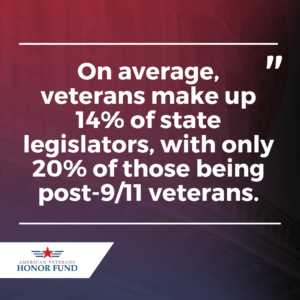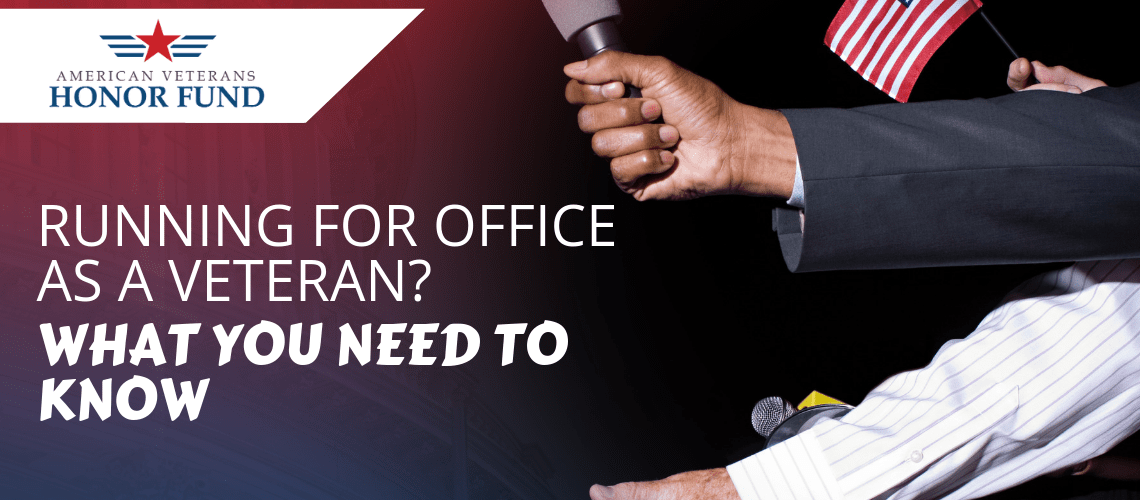The political environment in America can be challenging, but the opportunity to represent a community of people in office is an opportunity that few are fortunate to have. For veterans, having a presence in politics is important and often serves as an act of “Second Service” once they have completed their tenure in the military.
Military service members have often found an ongoing profession by stepping into political roles. However, since the 1970s, the number of veterans found in office has rapidly declined. This can be attributed to a multitude of factors: fewer veterans, less politically charged platforms stemming from conflicts such as the Vietnam War, and also a shift from a short term of service for civic duty to an ongoing profession. This means that many veterans are choosing not to simply fulfill their initial contracts and are rather electing to stay in the military for the duration of their professional life.
Thankfully, however, many veterans are still choosing to run for office. The 116th class of Congressmen and women, sworn in in January 2019, consists of the highest number of freshmen lawmakers that are veterans in nearly 10 years. The voices of veterans are important for a variety of reasons, and it’s important to keep a pipeline of incoming military veterans who wish to seek political office.

Where to start?
But where does a veteran even begin to start the process of running? The path to any office — local, state, or federal — is long and intense, and certainly not for the faint of heart. If you’re on the fence about leaping into the political space as a veteran, American Veterans Honor Fund has you covered. Start with our Veterans Guide to Running for Office. Here you will find a growing arsenal of resources and information to help you get started with your campaign.
What is Second Service?
“Second service” refers to military members who choose to serve in public office after ending their military service. Veterans are well-suited for public office as they have an intimate understanding of how foreign policy and other regulations affect those they are intended to benefit. On average, veterans make up 14% of state legislators, with only 20% of those being post-9/11 veterans. While average numbers of veterans in Congress has declined since the 1970s, a strong showing in the 2016 election shows a continued commitment to ongoing service from the veteran demographic.
Second service is often a second career path for veterans who wish to continue to make an impact, or who wish to facilitate further change in foreign and military policy.
Why Veterans are Well-Suited to Political Office
Veterans have a unique perspective from their years of service in the armed forces. No matter what branch a veteran has served in, his or her experience and view of foreign and government policy is often unmatched.
Additionally, tradition still dictates much of how today’s military is run, meaning that an adherence to the founding core values of the United States is strong within each veteran. This loyalty and commitment to serve the country transfers well into public office, in which many veterans can champion causes and legislation they believe in.
Public confidence in the military is also perennially high, as opposed to the low confidence that the American people currently have in their government and those in office. Leveraging this confidence, a veteran presence in public office positions can potentially help turn back the public’s trust in government and elected officials.

